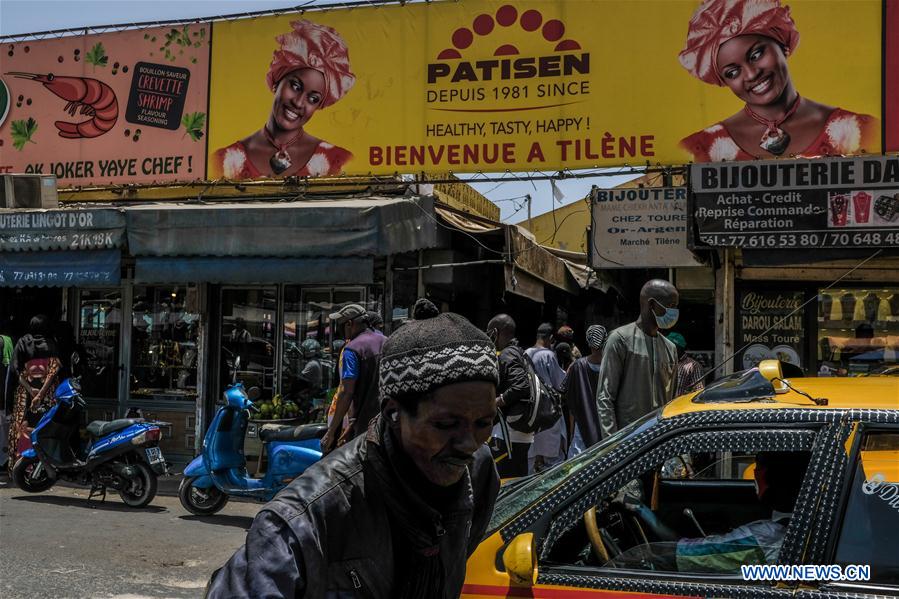
Excavation begins at historic Dakar market in renovation project

Heavy-duty excavators have begun to raze the famed Sandaga market, a sprawling hub of informal trade in the heart of Senegal’s capital Dakar, which the authorities want to rebuild and modernise.
The great hall, built in the Sudanese-Sahel tradition in 1933, has housed hundreds of stalls selling merchandise of all kinds, from food to craft goods. It was closed in 2013 for public safety after the edifice was weakened by several fires.
Under the watchful eyes of city and state authorities, three heavy diggers on Sunday evening began to destroy dozens of makeshift shops that had proliferated at the foot of the hall.
Police deployed in force to keep onlookers well clear of the work.
The machines threw up thick clouds of dust while they smashed market stalls and tipped loads of rubble, beams and corrugated iron into dump trucks.
The traders, whose stands overflowed into neighbouring streets, had shut up shop and packed their things after a final deadline from President Macky Sall, who wanted the Muslim feast of Eid al-Adha to be celebrated without trouble on Friday.
Many stallholders “are in the process of setting up shop at the racecourse”, in a less central part of town, the mayor of Dakar-Plateau, Alioune Ndoye, told AFP. Authorities have laid out 500 stalls there for use by vendors while the renovation takes place.
Shopkeepers voiced opposition over the relocation last month, telling the government that they would lose customers at the new site far from Sandaga, a curiosity for tourists which drew large crowds.
An iconic establishment lying between the old French colonial quarter and more working-class districts, Sandaga has been one of Dakar’s main trading centres for almost a century.
“It wasn’t holding up and so we decided to level it, to build an identical site while modernising it and adding an underground car park,” Ndoye said.
Frequented daily by residents of the capital, the market also drew people from the provinces and from the West African region. Many tourists came to hunt down artisanal carvings and other artefacts.
“Sandaga cannot continue in its current state of insecurity, the irregular occupation of the public highway and insanitary conditions,” said Minister of Urban Affairs Abdou Karim Fofana, who attended the demolition on Sunday.
“If there are problems, firefighters can’t even reach the middle. The day there is a catastrophe, people would ask where the authorities were,” Fofana recently warned.
Boubacar Dieng, a 47-year-old baker, watched the ballet of the excavating machines with a benevolent gaze from his front door, just opposite the market.
“This is good. There’s no problem, because it had become filthy, not pretty,” he told AFP. “And then there was the risk of aggression by bandits who occupied the abandoned building.”






